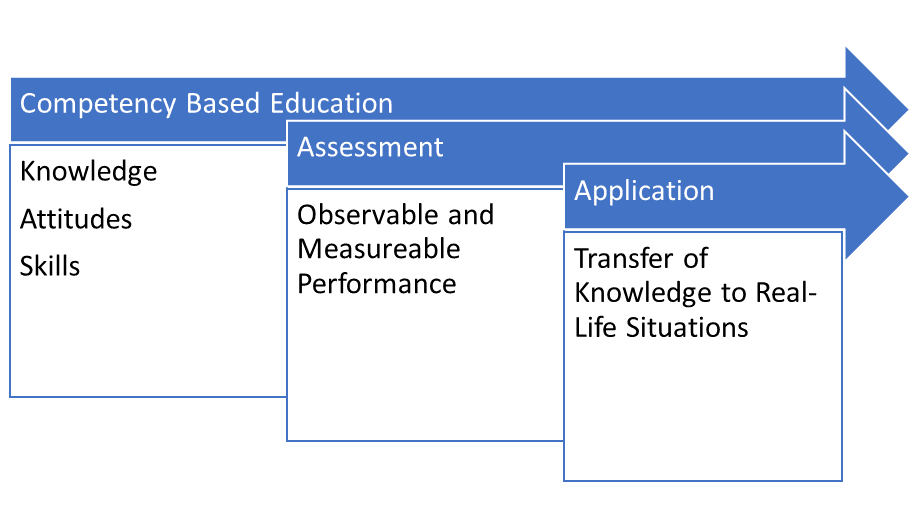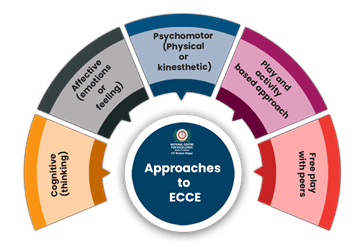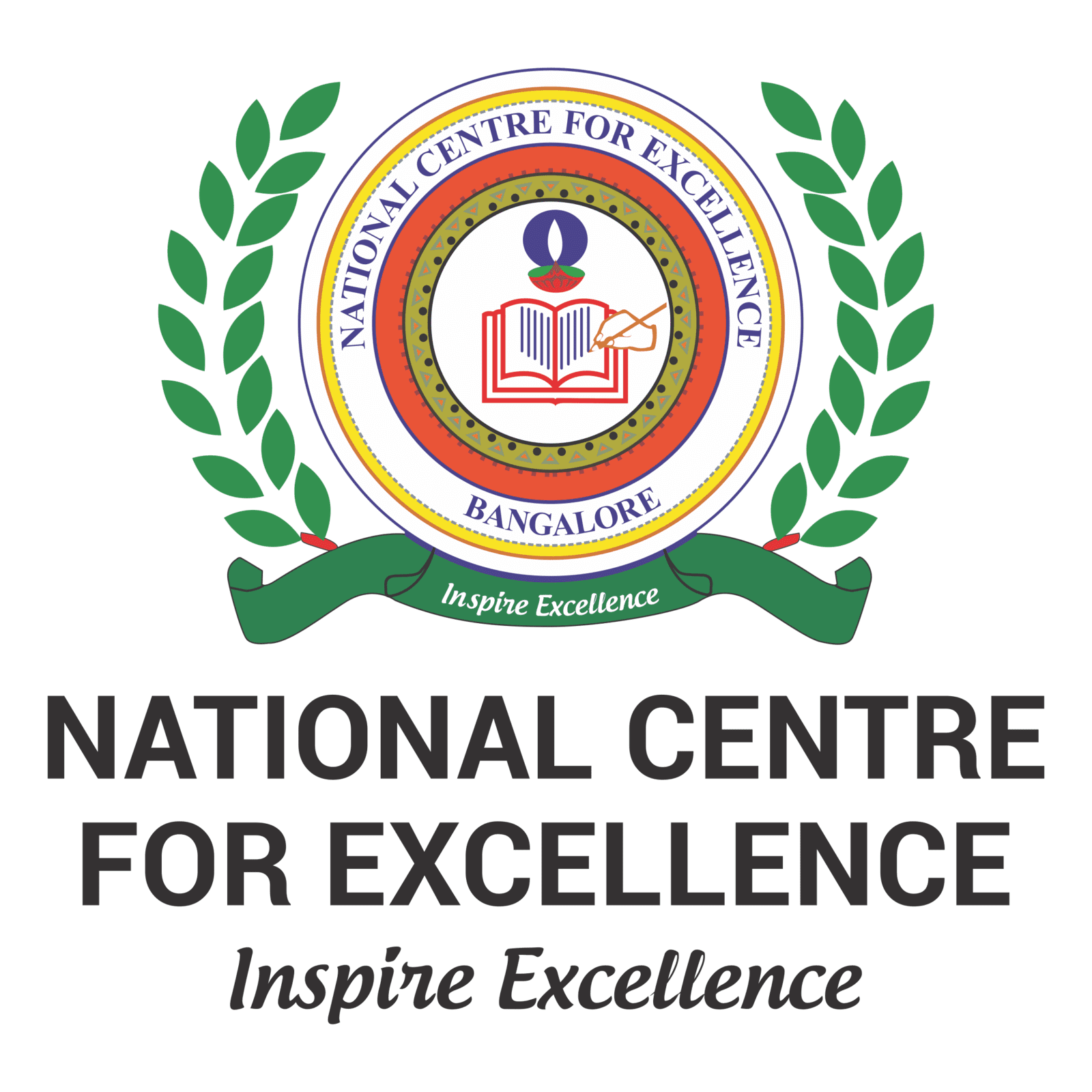The First Steps to Learning- Exploring Primary Education!
The First Steps to Learning- Exploring Primary Education!
Dear NCFE Community
The intent of the National Education Policy 2020, is to eradicate illiteracy that is caused due to unfortunate circumstances i.e background, disabilities, birth etc. It aims to achieve 100% Gross Enrollment Ratio (GER) by 2030.
How does it Impact Primary Students in India?
The 10+2 model will be replaced by the 5+3+3+4 model and will provide a platform to fulfil the aspirations of students from the Foundational Level.
Primary Education in the NEP 2020 aims to build students who are:
1. Self- Reliant: The curriculum will lend itself to students becoming decisive and independent thinkers.
2. Expressive: Learning in the mother tongue option will help students’ express thoughts, feelings, and ideas with ease.
3. Holistic: Students’ report cards and assessment will exhibit a child’s competencies and skills instead of only grades.
4. Knowledgeable: The aim of learning will emphasize on understanding concepts and themes rather than completing the course.
What is the big change in Primary Education under the NEP 2020?
1. Competency Based Education
Skills connected to Critical & Creative thinking, Problem Solving, Collaboration and Communication are core to successful living in the 21st Century.
Competency is a set of skills, abilities, knowledge that helps an individual perform a given task in real life. Every learning should go into the imbibing of skills that will help the student perform tasks or take actions to lead a productive and joyful life.
The task could be as simple as tying one’s shoe lace in early years, or to express one’s feelings using the appropriate words. And as children grow up, it could lead upto skills like going out to buy groceries or as complex as flying a plane.
Each of such tasks require a set of skills, abilities, knowledge and even attitudes to be able to perform the task at hand effectively and efficiently. Example: For buying groceries, the learner should be able to navigate the route to the grocery store on a map, prepare lists of purchases to be made, estimate the expenditure, locate the items in the store, pay the bills, check that the total mentioned in the bill is correct and the list matches the actual purchases, etc.

Decoding Competency Based Education
| Process | Outcome |
| What is it that the student should be able to do after student has undergone the learning process? | Demonstrate the Outcome of Learning or Learning Outcome |
| What is it that the student needs to learn/know in order to demonstrate that particular set of Learning Outcomes? | Curriculum |
| What are the classroom transactions, activities, that will become the basis for this kind of defined outcome of learning? | Pedagogy |
| How will the teacher check the learning or how will the student demonstrate that learning? | Assessment |
| How will the teacher know at what level of learning the student is? | Criterion Referenced Testing |
| What is the sum total of Learning Outcomes, Curriculum, pedagogy, assessment and criterion referenced testing as mentioned in the process above? | Competency-based Education |

Foundational Stage of Education
What was the need for the introduction of a Foundational Stage of Education in NEP 2020?
A growing body of research has revealed that a 'learning crisis' is brewing in Indian schools, where children are regularly promoted to the next stage without acquiring the basic literacy and numeracy skills they need. The reason for this is that the crucial years of brain development are not part of the formal school system.
Studies tell us that 85% of human brain development takes place before the age of six, including key domains such as language, cognitive and socio-emotional development. If we want to give every child the best possible start in life, we need to make sure they have access to quality education during these crucial years.
The neglect of crucial developmental domains during early childhood often leads to lifelong deficiencies in associated skills and behaviors. This, in turn, adversely affects academic performance in later years.
Vision of Early Childhood Care and Education
‘ECCE ideally consists of flexible, multifaceted, multilevel, play-based, activity-based, and discovery-based learning about, e.g., alphabets, languages, numbers, counting, colours, shapes, indoor and outdoor play, puzzles and logical thinking, problem solving, drawing/painting and other visual art, craft, drama and puppetry, music and movement.’- NEP2020
- Flexible Learning gives learners the freedom and choice to learn according to their intelligences, aptitude, talents, and interests and at learn at their own pace.
- Multifaceted learning is a type of learning that goes beyond just the cognitive domain. It takes into account all facets of the learner's personality, including the socio-emotional domain. This is especially important in the 21st century, when we are faced with so many challenges. ECCE also focuses on developing 21st century skills - the 5Cs: communication skills, critical thinking, creativity, collaboration, and character building. The goal is to prepare learners to adapt better to the ever-changing and complex world of the 21st century and lead a happy and balanced life.
- Play-based learning – makes learning a fun, pleasurable and collaborative experience. Reading, writing, and number operations are integrated with indoor and outdoor games, sketching, colouring, singing, and dancing. Children enjoy an active, fun-filled learning process.
- Activity-based learning- ensures active engagement of learner with concepts and instructional materials. Learning is hands-on and experiential, providing learners the opportunity of learning through manipulation of materials and objects.
- Discovery-based learning– encourages leaners to inquire into new concepts by building upon their prior knowledge and experiences. The learners learn to use their critical thinking, imagination, and creativity to establish connections between the ideas and construct new knowledge.
- Mother Tongue & Multilingualism - Language should facilitate learning and not become an impediment to it. Research shows that learning in mother tongue not only makes it easier to understand the curricular content but also develops better thinking and communication skills, to the extent that children need not be taught those skills and concepts again as a part of other languages and subjects. Also, when mother tongue is the medium of instruction it helps children learn other languages easily and develop a well-defined personal, social, and cultural identity
Based on empirical research findings that have shown children capable of learning a number of languages simultaneously, NEP recommends introducing early learner to multiple languages in their formative years.
Calling ‘foundational literacy’ a national mission; NEP provides that at the culmination of class III, a school-based assessment will be conducted to assess the foundational literacy and numeracy skills of all the learners. The standards for this will be established by a new national assessment centre, PARAKH (Performance Assessment Review & Analysis of Knowledge for Holistic Development).
What’s NCFE Doing?
1. The ECCE prototype has been developed by the VijayKiran Learning and Development Centre. The prototype is put into action and the analysis of the effects on children’s learning is being monitored

2. Multiple parent awareness programmes are consistently in progress at our campus.
3. Our pedagogical practices include:
a. Play – Way Method
b. Story Telling
c. Role Plays
d. Indoor and Outdoor Learning
e. Learning with nature
f. Learning through art and craft
g. Problem- Solving Skills as age appropriate
h. Increased learner participation
What can Parents do?
1.Learn and understand the Foundational Stage of NEP 2022 through attending these programmes.
2. Stay engaged with students through the activities as part of the learning journey provided by the school.
3. Attend all parent related activities for student holistic learning.
Conclusion:
A well-rounded and holistic curriculum for early childhood education (ECCE) is crucial for a child's future academic success in higher levels of schooling, as well as their emotional wellbeing in all relationships. The addition of a 'foundational stage' to the formal school system in India, as laid out in the NEP2020, will provide a solid foundation of holistic, enjoyable, stress-free, uniform, child-centered learning for all early learners.
A balanced and holistic ECCE curriculum paves the way for child’s successful academic performance at higher levels in school and college and emotional well-being in all relationships. By adding ‘foundational stage’ to the formal school system, the NEP2020 has laid foundations of holistic, fun-filled, stress-free, uniform, child-centred learning for all early learners in India.
The benefits of this crucial educational reform will be apparent in the coming decades as we see a marked improvement in the demographic dividend due to a young, proactive, literate, skilled, adaptable, and globally competent working population.
Serving You
Sunalini Benjamin
Read More from Sources Used for this Newsletter:
1. https://timesofindia.indiatimes.com/blogs/edutrends-india/nep-2020-the-foundational-stage/
